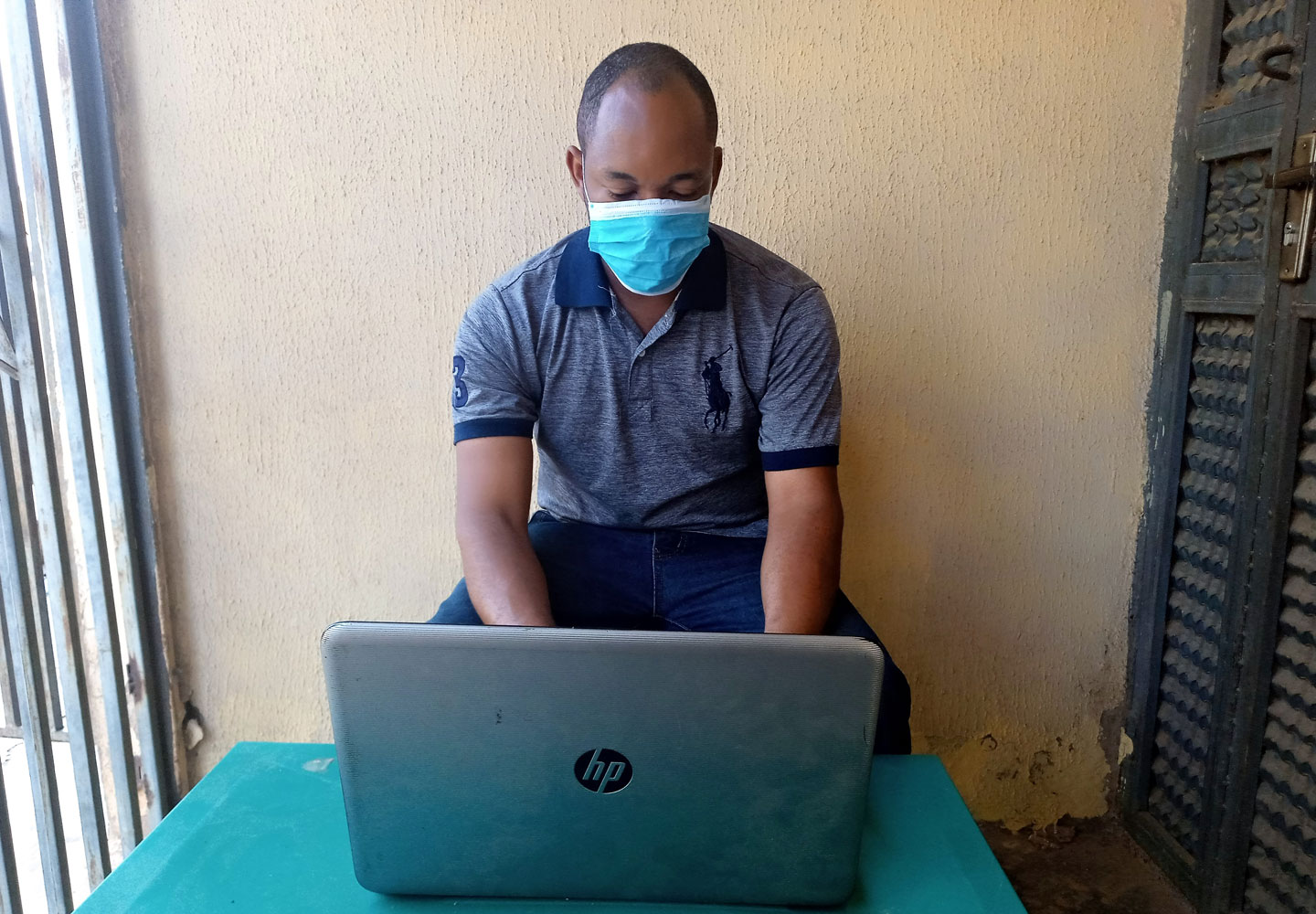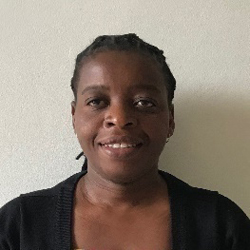Maintaining critical extension services for smallholders during COVID-19
IFAD Asset Request Portlet
Asset Publisher
Maintaining critical extension services for smallholders during COVID-19
Estimated reading time: 5 minutes
©IFAD / Vera Onyeaka
Agricultural extension services play a fundamental role in building producers’ capacities to maintain good agricultural practices, including control of crop and livestock pests and diseases, and in linking producers to inputs, services and markets. IFAD-supported projects provide extension services through various channels, such as farmer field schools, field days, demonstration plots, exchange visits and multi-stakeholder platforms.
Even during the COVID-19 crisis, extension services remain critical for the immediate response, to ensure quick adoption of safe practices, maintain food safety along the value chain, and help identify and respond to issues affecting food chain continuity. In addition, farmers need rapid advisory services to quickly adapt their systems and practices to cope with delays in access or unavailability of inputs, labour, cash and markets. But in the context of measures taken to control the pandemic, such as lockdowns, many of these services are harder to implement – or not possible to implement at all.
Many IFAD-funded projects, along with partner governments and private providers, have developed mechanisms to continue to provide extension services while adapting to the emergency context and the government regulations in place. In this regard, both digital tools as well as decentralized farmer-centred services and delivery mechanisms are proving more valuable than ever.
Identifying and tracking farmers’ needs via social media
Many IFAD-funded projects have leveraged social media platforms to interact with partners and beneficiaries and establish quick and interactive communication with them. The KCEP-CRAL programme in Kenya, for example, uses a WhatsApp platform to coordinate project activities and provide extension services. In response to COVID-19, the platform, which includes lead farmers and project beneficiaries, has been providing up-to-date extension services, including farming guidelines and needs-based support. Various IFAD-supported projects in India also apply this approach to connect the programme management units with decentralized extension officers and lead farmers.
These platforms have greatly transformed the flow of information among stakeholders involved in these projects, ensuring real-time communication and faster feedback of on-going activities. In particular, involving the lead farmers in such groups quickly brings in issues and best practices from the field, facilitating quick responses, cross-learning and scaling up of innovations between projects and farmers.
ICT tools provide e-advisory services to farmers
Other IFAD-funded projects are making extensive use of information and communications technologies (ICT), solutions built on the integration of mobile phones and other digital media, to expand farmers’ access to the information and knowledge they need during the pandemic. IFAD is also supporting the development of online platforms to provide a single gateway to access a range of different services.
In Zambia, for example, the Enhanced Smallholder Livestock Improvement Programme has piloted an online extension platform called M-FLAIS in the face of COVID-19. The platform aggregates the latest innovations in fisheries and livestock production and links local extension officers with farmers, who are able to access the platform with a basic mobile phone. The platform also addresses the challenges of limited physical contact during COVID-19 restrictions and low staffing levels within the government system. Meanwhile, in India’s state of Meghalaya, the Directorate of Agriculture has set up an integrated cloud platform that serves as an Agri-Response Centre (ARC). It connects farmers with subject matter specialists and suppliers, provides a toll-free number that farmers can call with their queries, and manages “floating” response vehicles that can be deployed where needed to help transport produce. And in Cambodia, the Khmer-language agricultural suite Chamka provides a fully integrated platform linking various applications, from farmer advisory services, to advice on access to inputs, to market and banking services.
Considering that access to mobile phones and the internet remains difficult for many, and that literacy often remains an obstacle, some projects are also using radio and television. In Malawi, the Sustainable Agriculture Production Programme disseminates information on good agricultural practices through radio and TV programmes to complement the conventional public extension system. In response to COVID-19, these messages now include the locations of input and output markets, weather information and post-harvest management options.
Remote capacity-building of lead farmers and grassroots organizations
As not all farmers can directly use ICT, and many prefer to learn from a trusted contact, it is crucial to also use decentralized outreach systems and peer networks to bridge the digital divide. Many IFAD-supported projects in Asia and Africa rely on decentralized extension services, such as lead farmers and community resource persons (CRPs), as well as grassroots organizations, which play a crucial role in leaving no one behind during the COVID-19 pandemic.
In India, when the movement of project staff and government extension agents was restricted, IFAD-funded projects enhanced the remote backstopping of lead farmers and CRPs by preparing pre-recorded videos and picture-based materials to provide quality training to their peers who may not have access to ICT-based services. This video support allowed CRPs for the LAMP project to train farmers in producing their own inputs and feed when the supply was blocked. These farmers are now able to conduct training of their peers in smaller groups, following the country’s COVID-19 guidelines.
Several projects also include platforms that provide access to training material and videos. For instance, weconnectfarmers in Western Africa provides a directory of various services, including training resources, in an effort to facilitate exchange among farmers. Similarly, in Cambodia, the Chamka app provides access to training materials and expert advice, which can be crucial to empowering lead farmers and CRPs. Other innovations include regular video follow-up of farming demonstrations via Facebook, facilitating exchange between farmers, hosting remote trainings and sharing periodic updates on successes and challenges.
Farmers’ organizations and agrodealers (small-scale operations that stock farming inputs) also play a key role in bridging extension services to farmers, especially when they are already equipped with ICT tools. In Maharashtra, for example, 265,000 farmers’ organization members are using WhatsApp for exchange and learning purposes. In Kenya and many Asian countries, IFAD-funded projects also use local agrodealers to distribute extension materials and critical messages to their farmer customers.
Looking ahead: Ensuring continued access
COVID-19 lockdowns have affected communication between producers, institutions and service providers. By using and adapting existing ICT-based solutions, IFAD-supported projects have been able to continue providing extension support to smallholder producers in those circumstances where it was not possible to gather in person. To ensure continued access to extension and advisory services, it is key to combine the adoption of digital tools with the strengthening of outreach mechanisms and grassroots institutions to improve the efficiency, inclusion, resilience and timeliness of extension support beyond the current COVID crisis.
The authors would like to acknowledge contributions from the Bangladesh, Cambodia, India, Kenya, Malawi and Zambia country teams, as well as from other IFAD partners such as Grow Asia; the reviews from Simone Sala, Robert Delve, Nerina Muzurovic and Thouraya Triki; the insights shared during the VCBN seminar organized in collaboration with IFAD and GFRAS; and the FAO farmer field school platform and extension unit.
Publication date: 08 June 2020
